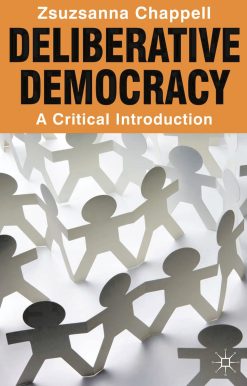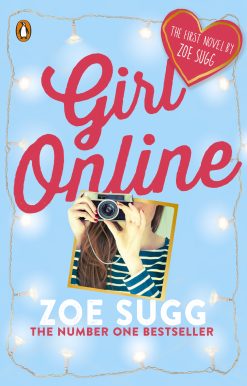Battle Hymn of the Tiger Mother
14.00 JOD
Please allow 2 – 5 weeks for delivery of this item
Add to Gift RegistryDescription
“Courageous and thought-provoking.” —David Brooks, The New York Times“Breathtakingly personal . . . [Chua’s] tale is as compelling as a good thriller.” —The Financial Times”[F]ascinating. . . . the most stimulating book on the subject of child rearing since Dr. Spock.” —Seattle Post-Intelligencer“Chua’s memoir, Battle Hymn of the Tiger Mother, is a quick, easy read. It’s smart, funny, honest and a little heartbreaking . . .” —Chicago Sun-Times At once provocative and laugh-out-loud funny, Battle Hymn of the Tiger Mother ignited a global parenting debate with its story of one mother’s journey in strict parenting. Amy Chua argues that Western parenting tries to respect and nurture children’s individuality, while Chinese parents typically believe that arming children with skills, strong work habits, and inner confidence prepares them best for the future. Battle Hymn of the Tiger Mother chronicles Chua’s iron-willed decision to raise her daughters, Sophia and Lulu, the Chinese way – and the remarkable, sometimes heartbreaking results her choice inspires. Achingly honest and profoundly challenging, Battle Hymn of the Tiger Mother is one of the most talked-about books of our times.
Additional information
| Weight | 1.17 kg |
|---|---|
| Dimensions | 1.73 × 13.1 × 2.93 cm |
| PubliCanadation City/Country | USA |
| book-author1 | |
| Format | Paperback |
| Language | |
| Pages | 256 |
| Publisher | |
| Year Published | 2011-12-27 |
| Imprint | |
| ISBN 10 | 0143120581 |
| About The Author | Amy Chua is the John M. Duff Professor of Law at Yale Law School. Her most recent book is Political Tribes: Group Instinct and the Fate of Nations. She is also the author of The Triple Package: How Three Unlikely Traits Explain the Rise and Fall of Cultural Groups in America (co-authored with Jed Rubenfeld). Chua's first book, World on Fire, was a New York Times bestseller and selected by The Economist as one of the best books of 2003; while her second book, Day of Empire, was a critically acclaimed Foreign Affairs bestseller. Chua lives with her husband, two daughters, and two Samoyeds in New Haven, Connecticut. |
“Few have the guts to parent in public. Amy [Chua]'s memoir is brutally honest, and her willingness to share her struggles is a gift. Whether or not you agree with her priorities and approach, she should be applauded for raising these issues with a thoughtful, humorous and authentic voice.” —TIME“Battle Hymn of the Tiger Mother is entertaining, bracingly honest and, yes, thought-provoking.” —The New York Times Book Review“[A] riveting read . . . Far from being strident, the book's tone is slightly rueful, frequently self-deprecating and entirely aware of its author's enormities . . . Chua's story is far more complicated and interesting than what you've heard to date—and well worth picking up . . . I guarantee that if you read the book, there'll undoubtedly be places where you'll cringe in recognition, and others where you'll tear up in empathy.” —San Francisco Chronicle“Courageous and thought-provoking.” —David Brooks, The New York Times“Breathtakingly personal . . . [Chua’s] tale is as compelling as a good thriller.” —The Financial Times"[F]ascinating. . . . the most stimulating book on the subject of child rearing since Dr. Spock." —Seattle Post-Intelligencer“Chua’s memoir, Battle Hymn of the Tiger Mother, is a quick, easy read. It’s smart, funny, honest and a little heartbreaking . . .” —Chicago Sun-Times“Battle Hymn of the Tiger Mother hit the parenting hot button, but also a lot more, including people's complicated feelings about ambition, intellectualism, high culture, the Ivy League, strong women and America's standing in a world where China is ascendant. Chua's conviction that hard work leads to inner confidence is a resonant one.” —Chicago Tribune“Readers will alternately gasp at and empathize with Chua's struggles and aspirations, all the while enjoying her writing, which, like her kid-rearing philosophy, is brisk, lively and no-holds-barred. This memoir raises intriguing, sometimes uncomfortable questions about love, pride, ambition, achievement and self-worth that will resonate among success-obsessed parents . . . Readers of all stripes will respond to [Battle Hymn of the] Tiger Mother.” —The Washington Post |
|
| Excerpt From Book | This is a story about a mother, two daughters, and two dogs. It's also about Mozart and Mendelssohn, the piano and the violin, and how we made it to Carnegie Hall.This was supposed to be a story of how Chinese parents are better at raising kids than Western ones.But instead, it's about a bitter clash of cultures, a fleeting taste of glory, and howI was humbled by a thirteen-year-old.Part OneThe Tiger, the living symbol of strength and power, generally inspires fear and respect.The Chinese MotherA lot of people wonder how Chinese parents raise such stereotypically successful kids. They wonder what these parents do to produce so many math whizzes and music prodigies, what it's like inside the family, and whether they could do it too. Well, I can tell them, because I've done it. Here are some things my daughters, Sophia and Louisa, were never allowed to do:attend a sleepoverhave a playdatebe in a school playcomplain about not being in a school playwatch TV or play computer gameschoose their own extracurricular activitiesget any grade less than an Anot be the #1 student in every subject except gym and dramaplay any instrument other than the piano or violinnot play the piano or violin.I'm using the term "Chinese mother" loosely. I recently met a super-successful white guy from South Dakota (you've seen him on television), and after comparing notes we decided that his working-class father had definitely been a Chinese mother. I know some Korean, Indian, Jamaican, Irish, and Ghanaian parents who qualify too. Conversely, I know some mothers of Chinese heritage, almost always born in the West, who are not Chinese mothers, by choice or otherwise.I'm also using the term "Western parents" loosely. Western parents come in all varieties. In fact, I'll go out on a limb and say that Westerners are far more diverse in their parenting styles than the Chinese. Some Western parents are strict; others are lax. There are same-sex parents, Orthodox Jewish parents, single parents, ex-hippie parents, investment banker parents, and military parents. None of these "Western" parents necessarily see eye to eye, so when I use the term "Western parents," of course I'm not referring to all Western parentsjust as "Chinese mother" doesn't refer to all Chinese mothers.All the same, even when Western parents think they're being strict, they usually don't come close to being Chinese mothers. For example, my Western friends who consider themselves strict make their children practice their instruments thirty minutes every day. An hour at most. For a Chinese mother, the first hour is the easy part. It's hours two and three that get tough.Despite our squeamishness about cultural stereotypes, there are tons of studies out there showing marked and quantifiable differences between Chinese and Westerners when it comes to parenting. In one study of 50 Western American mothers and 48 Chinese immigrant mothers, almost 70% of the Western mothers said either that "stressing academic success is not good for children" or that "parents need to foster the idea that learning is fun." By contrast, roughly 0% of the Chinese mothers felt the same way. Instead, the vast majority of the Chinese mothers said that they believe their children can be "the best" students, that "academic achievement reflects successful parenting," and that if children did not excel at school then there was "a problem" and parents "were not doing their job." Other studies indicate that compared to Western parents, Chinese parents spend approximately ten times as long every day drilling academic activities with their children. By contrast, Western kids are more likely to participate in sports teams.This brings me to my final point. Some might think that the American sports parent is an analog to the Chinese mother. This is so wrong. Unlike your typical Western over-scheduling soccer mom, the Chinese mother believes that (1) schoolwork always comes first; (2) an A-minus is a bad grade; (3) your children must be two years ahead of their classmates in math; (4) you must never compliment your children in public; (5) if your child ever disagrees with a teacher or coach, you must always take the side of the teacher or coach; (6) the only activities your children should be permitted to do are those in which they can eventually win a medal; and (7) that medal must be gold. |
Only logged in customers who have purchased this product may leave a review.






Reviews
There are no reviews yet.